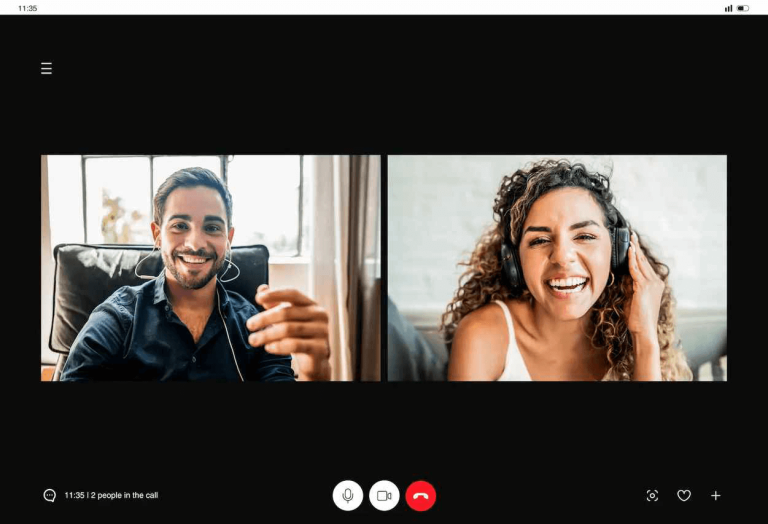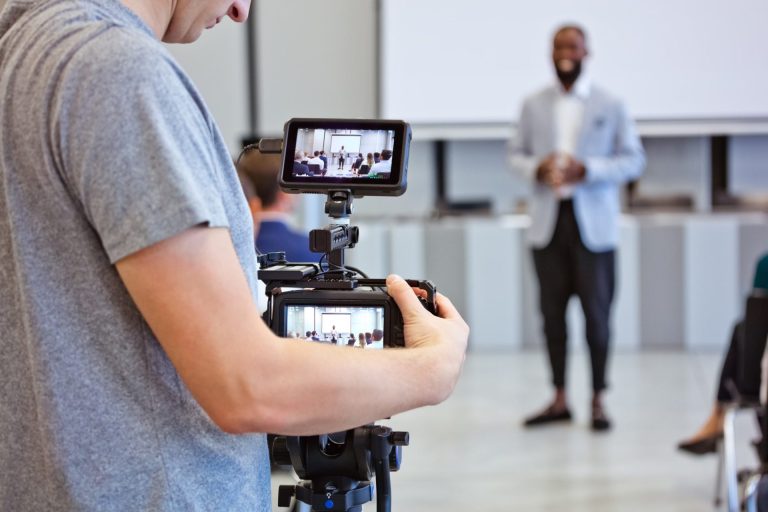From Sea Cucumbers to People Analytics: The Top 10 Takeaways from the Inaugural Episodes of the Wildly Capable Podcast!
From where does deep capability emerge? What gives rise to the gravitas and perspective that marks our greatest leaders? Is it work experience, in-the-trenches wisdom, innovative thinking?
Author Julie C. Henry, Lionsgate Entertainment’s Brian Padilla, PALFINGER’s Chris Bivona, Twitch’s Max Brawer, IMD’s Paul Hunter, ExperiencePoint’s Ramzi Rahbani and the University of Pennsylvania’s Rebecca Stein joined as special guests in the first episodes of NovoEd’s Wildly Capable Podcast and shared stories from their extraordinary careers to help answer these questions and more.
We discussed a wide range of topics that included what animals from sea turtles to lions and hyenas can teach us about leadership capabilities, the parallels between resilience in the performing arts and in corporate life, how lessons from hostage negotiations can inform high performance leadership, the art and science of constructive pivoting, and what it means to be an anthropologist making a study of millennial workplaces today.
Here are our top 10 takeaways from Wildly Capable by NovoEd to date…
Takeaway #1: Instructional design’s power and limitations derive from its roots in military training. Overlay instructional design’s underpinning with programs that facilitate systems thinking and capacity building.
“Instructional design…was really developed in the Army. I remember basic training and learning how to take a gun apart and how to put a gun together. And the way they teach you to do it is they teach you one step at a time…in small groups and you can see that every single instructor is doing exactly the same thing. And you realize that they do this so many times that they have the ability to try out what happens if [they] teach step one using this phrase, versus if [they] teach step one using [another] phrase, and they can perfect the phrasing and the way they share the information. A lot of things that we teach in higher education are maybe sort of more complex and more deep and have more layers than just taking a gun apart and putting it together again.”
Rebecca Stein – Executive Director of the Online Learning Initiative at the University of Pennsylvania
Takeaway #2: If the only tool you have is a hammer, everything looks like a nail. Instead of raising your voice, learn how to modulate and shift it to bridge divides.
“When a lot of Americans travel overseas and people don’t speak English, what do Americans do? We talk louder and louder and louder. And they expect that someone who’s German or Turkish, or from the hills of Switzerland is going to understand because we yell louder. And I think that what people were starting to say is, well, this pandemic’s going to [be] over, so if I just pound the table harder and force people to do more, that they’re going to get it done…because they’re going to want to come back to the office and they’re going to be overly excited to get the work done. Well, no, it’s not about talking louder, it’s about changing the entire landscape. Learn the language, or use the tools that you have.”
Chris Bivona, Vice President Human Resources Americas, PALFINGER Group
Takeaway #3: Coach hiring managers to think flexibly and consider non-traditional candidates with strong leadership capabilities for all roles, including those in niche and specialized functions.
“Very specialized functions are incredibly difficult to recruit and so there’s an element of flexibility that I’ve been trying to coach, especially with leaders. Production finance comes to mind. That is a very niche function for television that is just in demand right now, and impossible to recruit for. And so it’s this notion of, okay, can we, can we coach our hiring managers and executives to think outside of the box, could we target adjacent functional skills, but really hone in and lean on those leadership capabilities, right? Are they great leaders? Could they come in and learn your specific function knowing that we just don’t have very many candidates on the market?”
Brian Padilla, Vice President, Human Resources Business Partner at Lionsgate Entertainment
Takeaway #4: Leadership is like a spinning top. Make one small turn at the top or at the bottom and everybody starts turning really, really fast. Slow down and connect.
“I just tell [managers]: slow down. Ask the questions, connect with the people. Understand [that] your way may still be the most impactful, but you really have to understand what it means for the people all the way through the organization. So many people have become robotic in, ‘here’s the global strategy,’ or ‘here’s what we need to get done, the MBOs. Put it in an email, send it out with a task list and follow up weekly with a call to make sure that X, Y, Z is done.’ And what they’re finding is, one, people are overwhelmed with email. Two, because they don’t have that connection, they’re not responsive. So how do you manage that? You can’t be an ostrich and bury your head in the sand. You have to be proactive. You have to be in uncomfortable positions. You have to learn to lead from the sidelines and not always from the top.”
Chris Bivona, Vice President Human Resources Americas, PALFINGER Group
Takeaway #5: A named expression of care – even in the form of research surveys – can go a long way in elevating employee experience. Personalize the tools that you have to change the timbre of work.
“The pandemic changed the tone of the work that I do [in people analytics]. One thing that we found that was interesting was that we would ask people how they were doing at the top of a survey. The medium was the message. If someone needs a little extra outreach, we can offer it to them with this…we just wanted to make people feel like we were there, always asking and always listening.”
Max Brawer, Head of People Analytics at Twitch
Takeaway #6: Leadership is something that is granted to you and that you also have to claim. Do not take a job title for granted.
“You may be granted leadership, because somebody’s just given you a job title or a department or a team or whatever it might be, but you’ve also got to step up into that role. You’ve got to claim that leadership role. There’s always this dance in our leadership roles of claiming and granting, and we’ve got to be able to do both.”
Paul Hunter, Director of Programs and Learning Design at IMD Business School
Takeaway #7: Humans, like sea cucumbers, are resilient and wired to regrow…even and especially when we are stressed. If you find yourself with your back against the wall, remember that you are biologically oriented to survive and thrive.
“If you were to jump in the water with me right now and go snorkeling or diving and look on the seafloor, you’d might see this little sausage shaped animal and maybe not even assume it’s alive. But it happens to be a sea cucumber. And when threats happen, when a predator were to come along, this animal can literally throw up its own guts. It can eviscerate and if that doesn’t scare away the predator, if the predator’s like, yeah, I’m good. I’ll just eat the guts. Okay. That animal, this little tiny innocuous sea cucumber can regrow its own guts…and, to me, that’s the ultimate example of all the times as leaders or just even people that we’re stressed, we find ourselves back against the wall and we literally feel like we’re going to be sick to our stomachs. But, like sea cucumbers, we’re wired for resilience…which should give us great comfort and great bravery to keep pushing through whatever we need to push through.”
Julie C. Henry, Author of Wisdom from the Wild: The Nine Unbreakable Laws of Leadership from the Animal Kingdom
Takeaway #8: 85% of the jobs by 2030 will be new jobs…so the need to constantly and strategically pivot careers and businesses is a foregone conclusion. Don’t overplan – pivot, adapt and lean into abstraction.
“There’s no such thing as linear learning. It’s adaptive learning. Learn on the job and as needed for the job. I don’t have a clear path of what I am going to learn for the next three years. An adaptive career is something I’ve instilled from the start. I don’t think I’ll be in the same industry, probably in the next 5, 10 years. I also know that I will pivot constantly. There is science to this madness as I’m going through…it’s always been constructive pivoting.”
Ramzi Rahbani – Vice President of Product, Design & Engineering at ExperiencePoint
Takeaway #9: Higher education is here for the long run because skills are not enough, you can’t apply skills without capabilities, and higher education brings together the teaching of knowledge and the social development of the student that connects skills to capabilities.
“Most work is collaborative. Most work has a human element to it either because we’re developing a thing for humans to consume. We can’t focus on the skills without understanding the human side, and the group side, and the social side. Higher ed is here in the long run because higher ed brings together the teaching of knowledge and the social development of the student. And those two things together are the magic of higher education. You can’t do skills without capability. The challenge for people in the ed tech space and the online space is how do we do it in non-traditional settings? How do we create this social environment when we take away the green grass and the coffee shop and how do we still create this ability to interact and learn from each other, and learn to learn from each other?”
Rebecca Stein – Executive Director of the Online Learning Initiative at the University of Pennsylvania
Takeaway #10: Digital learning creates more time for learning application. Leverage time to your advantage and give students the opportunity to reflect on and apply new knowledge over extended periods for deeper learning.
“We have a number of online programs that we’ve been running for many years. We run those online programs over a five week period. What we saw already from those online programs many years ago was, when you space something out over a longer period of time, you’re opening up the field for learning application. That’s where the rubber hits the road. What’s not exciting is that you’ve remembered the three concepts that we’ve presented. That’s nice, but what’s more important is how you can apply those concepts to your business and team or whatever it might be. What we’re seeing with the digital programs that we run is there’s just so much more time and space for people to reflect, to think, to apply. Maybe we’re doing two hours on Tuesday morning and two hours and Thursday morning. There’s stuff happening in between and there are activities that we’re asking them to take. Very often, we have people coming back saying, “Based on what you guys said on Tuesday, I walked up the corridor and talked to my head of marketing and said, “Hey, maybe it would make sense if we were to do 1, 2, 3.” Now we’ve implemented that. I’ll let you guys know next week what happens.” Your workplace becomes your laboratory for an extended period.”
Paul Hunter, Director of Programs and Learning Design at IMD Business School
To listen to Wildly Capable by NovoEd, now available on all major podcast streaming platforms, please visit: https://www.novoed.com/resources/wildly-capable-podcast/


